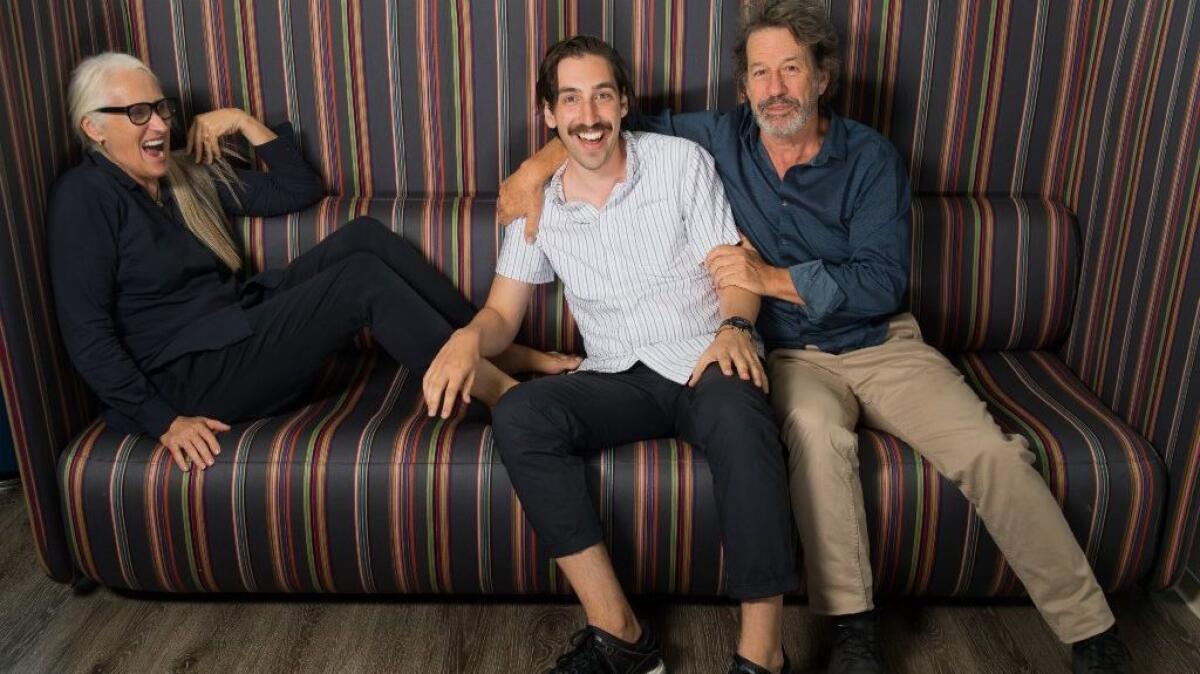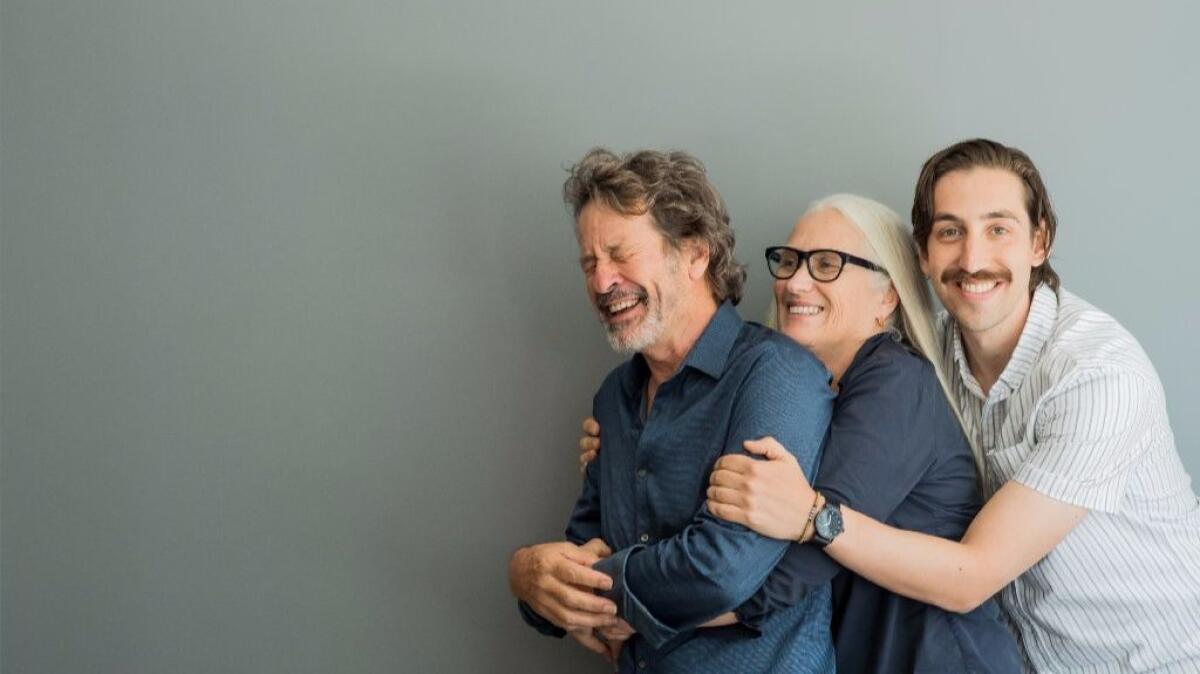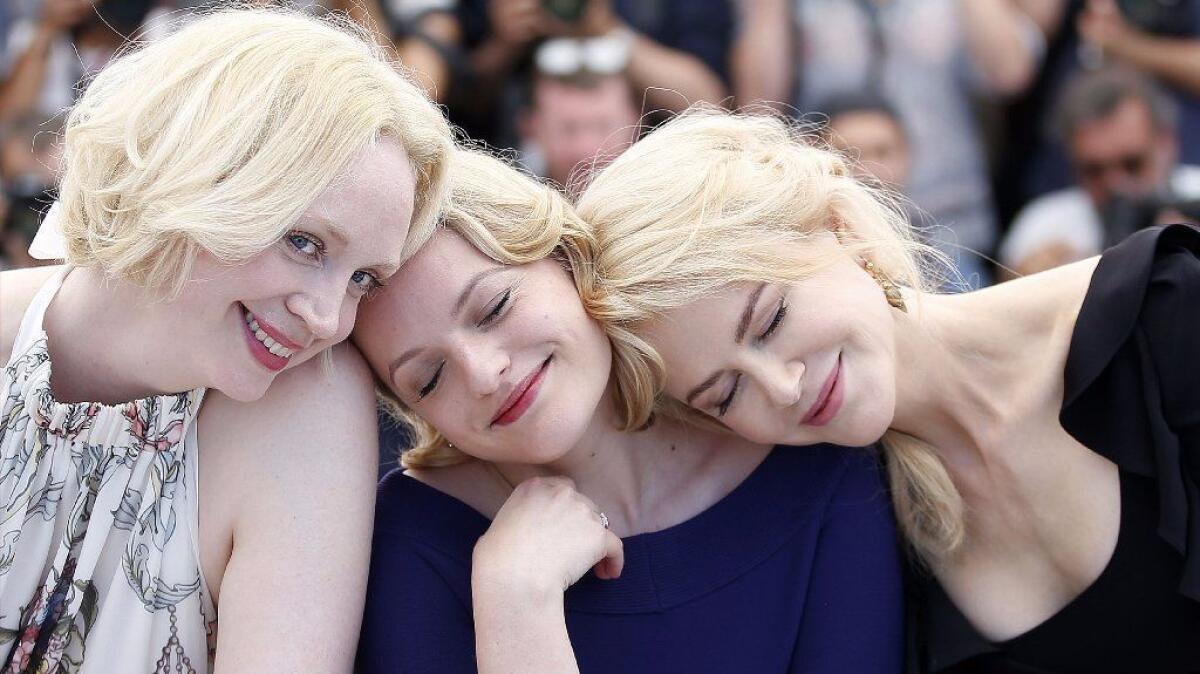The team behind ‘Top of the Lake: China Girl’ plunges into prostitution, illegal surrogacy, motherhood — and humor

Most would likely agree that the crime-mystery miniseries “Top of the Lake: China Girl” can be moody to the point of grim. So it’s a little unnerving that a gathering of co-creator Gerard Lee, co-creator and co-director Jane Campion and co-director Ariel Kleiman to discuss the Sundance Channel show is peppered by laughter. And that’s a clue as to the show’s subtle, often missed ingredient: Sly, unexpected humor.
“The tone we came up with in the first season, which was a spontaneous thing, hit a note all over the world,” says Lee. “So there was a temptation to keep that tone of voice, that style of drama going ...”
“We feel we have a unique contribution in that we’re both kind of absurdists,” cuts in Campion. “We have a hard time not laughing, but we’re also sensitive and feel for people when they’re in horrible situations.”
“And we also think it’s funny,” adds Lee.
“Yeah,” says Campion, and all three laugh loosely. “We’ve spent our whole lives honing our personal qualities to be less offensive in the general community.”
Then they’re laughing again.

“China Girl” continues the story of Det. Robin Griffin (Elisabeth Moss), who has returned to Australia years after the events of the 2013 “Top of the Lake.” When the body of a sex worker is discovered at a beach, Griffin’s investigation leads her deep into the thickets of not just legal prostitution, but illegal surrogacy and personal struggles with motherhood.
“It’s the psychic mother zone,” says Campion, who also happens to be the mother of one of the series’ key actresses, Alice Englert. “The psychic ether of wanting to have a baby, learning you can’t have a baby, being pregnant, losing babies. Often you don’t share it with anyone. It’s an intense war zone that you hardly ever see written down.”
Video Q&A’s from this season’s hottest contenders »
Of the collaborators, Lee is the sly one, deceptively soft-spoken and deadpan. He first collaborated with Campion on her debut feature, “Sweetie,” in 1989. Kleiman stepped into the co-director chair vacated when first-season collaborator Garth Davis’ (“Lion”) film work conflicted. The son of a Russian gold medal-winning mathematician mother, Kleiman was just 4 when “Sweetie” came out.
Once Campion and Lee selected him, she says Kleiman suggested, “‘Let’s keep this between the two of us, let’s not get a third director. Let’s keep this handmade.’”
“It’s an authored vision,” Kleiman agrees. He cites lessons he learned from Campion, including her ability to absorb what other artists bring to moments. The two would sometimes shoot scenes for each other:
“To have such a close collaboration with another director is really rare and very special,” he says.
Then there’s Campion, the series’ engine, still the only female winner of the Palme d’Or (for directing “The Piano”) and an Oscar winner (for writing “The Piano”). For this maker of prestige dramas, the move into genre TV brought a kind of freedom.
“Even in this crime/mystery story, we felt like we were in a place where we could be ourselves,” she says, acknowledging the unfolding mystery could hook viewers while the show took its time to develop characters and story.
Lee says, “It gave us a chance to give our worldview. ’Cause we’re not young …’” at which Kleiman practically snorts. Lee continues, “… There’s plenty of other older people saying all kinds of rubbish.”
The show takes deep dives into its themes, especially motherhood, amid a wrongful-death investigation, toxic misogyny and the mysterious machinations of a bizarre German activist/pimp (a unique performance by David Dencik). But its grim humor is apparent in its opening sequence, in which a body is disposed of … awkwardly. There’s also a confrontation, closing business from the first season, that is patently absurd.

See the most read stories this hour »
Then there’s Robin’s unwanted sidekick, uniformed officer Miranda Hilmarson. The unpredictably emotional Miranda (played to the hilt by series-stealer Gwendoline Christie), as much as any character or plotline, treads the series’ tightrope between pathos and (intentional) bathos.
Kleiman says, “She exudes humanity in this very pure, pure way.”
“Yeah, childlike, really,” says Campion of the 6-foot-3 Christie, cast beside the 5-foot-3 Moss. “I remember when she and Lizzie first met, just immediately getting the buzz off each other, running to each other’s arms … Gwendoline actually picking up Lizzie.” More laughter.
Perhaps the best summation of the series’ tone came unintentionally in its Australian Academy of Cinema and Television Arts Awards nomination for Davis’ direction “in a drama or comedy.”
More to Read
From the Oscars to the Emmys.
Get the Envelope newsletter for exclusive awards season coverage, behind-the-scenes stories from the Envelope podcast and columnist Glenn Whipp’s must-read analysis.
You may occasionally receive promotional content from the Los Angeles Times.






